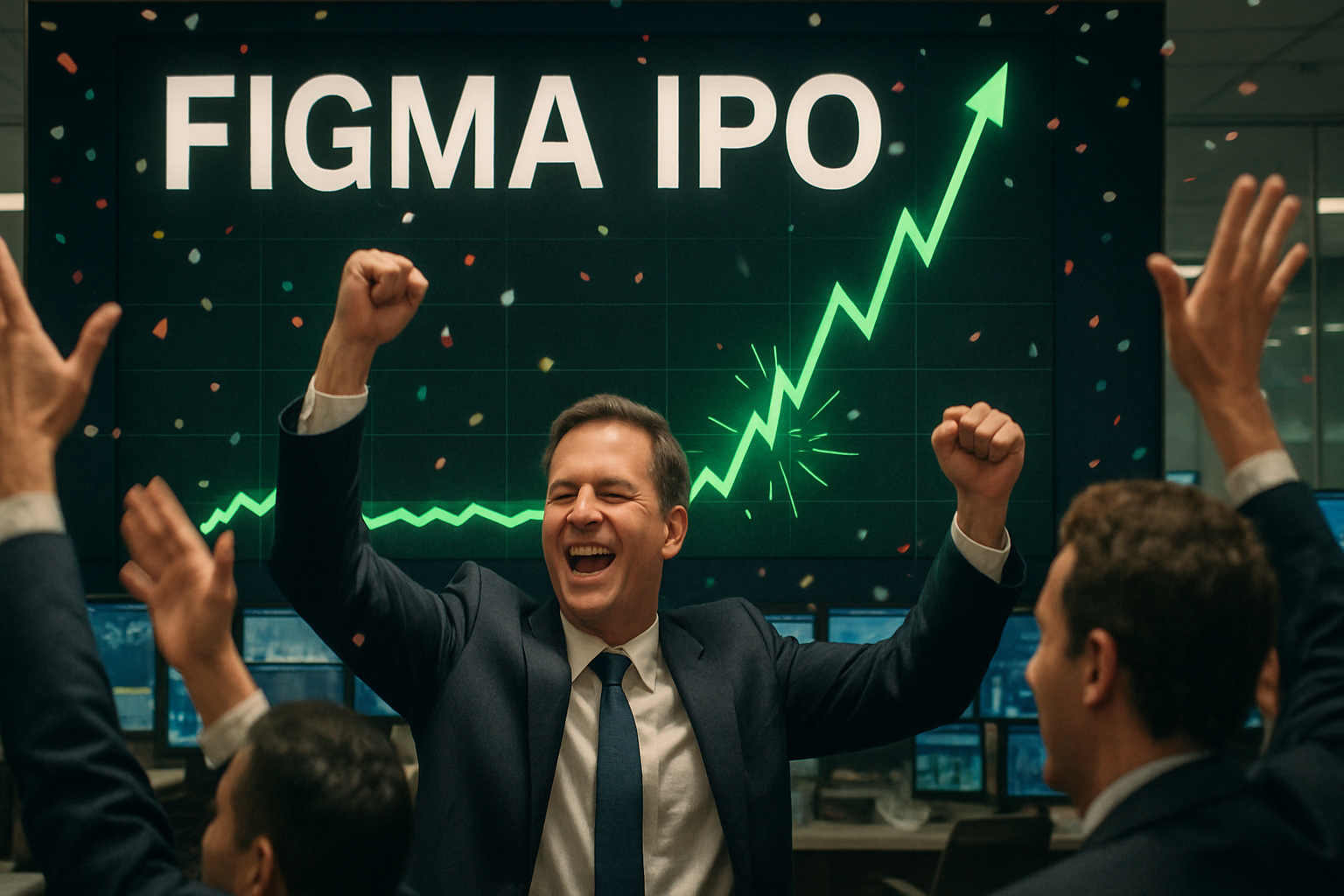I've seen this movie before.
Yesterday, Figma blasted onto public markets with the subtlety of a fireworks factory explosion, its share price rocketing roughly 250% above its IPO price. The design software darling's reception wasn't just warm—it was positively volcanic.
And I couldn't help but experience a nagging sense of déjà vu. Cast your mind back to 2019, when Beyond Meat strutted onto Wall Street with its plant-based revolution narrative and promptly soared 160% on day one. Different company, different sector, remarkably similar market hysteria.
The parallels are... well, they're enough to make a seasoned market observer raise an eyebrow (or two). Both companies arrived wrapped in shiny "disruption" packaging. Both were venture-backed unicorns with sky-high private valuations. Both positioned themselves at fascinating crossroads—Beyond Meat at the intersection of environmental consciousness and protein consumption; Figma at the confluence of design collaboration and (surprise, surprise) artificial intelligence.
Look, there's something almost ritualistic about how these high-profile IPOs unfold. The market, starved for fresh opportunities after an IPO drought, practically tramples itself rushing toward anything with a compelling story. Investment bankers deliberately underprice the offering (a practice that honestly deserves more scrutiny than it gets), institutions get their allocations, and retail investors? They're left scrambling for crumbs once public trading begins.
I've covered enough market debuts to recognize the pattern.
What happened to Beyond Meat after its spectacular entrance? The stock eventually touched $235—more than 850% above its IPO price. Today it's languishing below $7. Ouch.
Now, I'm not suggesting Figma will follow the same downward trajectory. The businesses couldn't be more different. Figma has built something designers actually love (having used it myself, I get the appeal), with solid economics and remarkably sticky customer relationships. Beyond Meat was selling... expensive fake burgers.
But the market psychology? That's where things get interesting.
There's something almost primal about investor behavior during these moments. FOMO—fear of missing out—is a powerful drug. When everyone around you is celebrating a 250% pop, rational valuation models tend to get tossed out the nearest window.
(Remember that Adobe tried to buy Figma for $20 billion before regulators stepped in? The market just decided that was a bargain. In a single day. Which feels... optimistic.)
The tech investment landscape is littered with cautionary tales of overhyped IPOs that crashed back to earth. But it's also filled with examples of companies that seemed ridiculously overvalued until they weren't—your Amazons, Microsofts, and Apples.
That's the mental trap many investors find themselves in. "What if this is the next colossus that just looks expensive because we're too shortsighted to see its potential?"
Sometimes they're right. Usually they're not.
Beyond Meat's decline wasn't just about competition or execution problems—though both played their part. It was about a narrative that raced miles ahead of business reality. The "plant-based revolution" turned out to be more of a modest dietary shift. Growth plateaued. The magic faded.
Figma might very well grow into its current valuation. Their product is excellent, they have passionate users, and the AI tailwinds are genuine. But markets have a funny way of overestimating short-term potential while underestimating long-term transformation.
For now, I'll just note that history suggests caution when IPOs run this hot. Someone eventually gets left holding a bag lighter than expected.
Time will tell if Figma investors are getting a bargain or a lesson. Either way, Wall Street's IPO playbook remains remarkably consistent—even if the companies running through it couldn't be more different.
